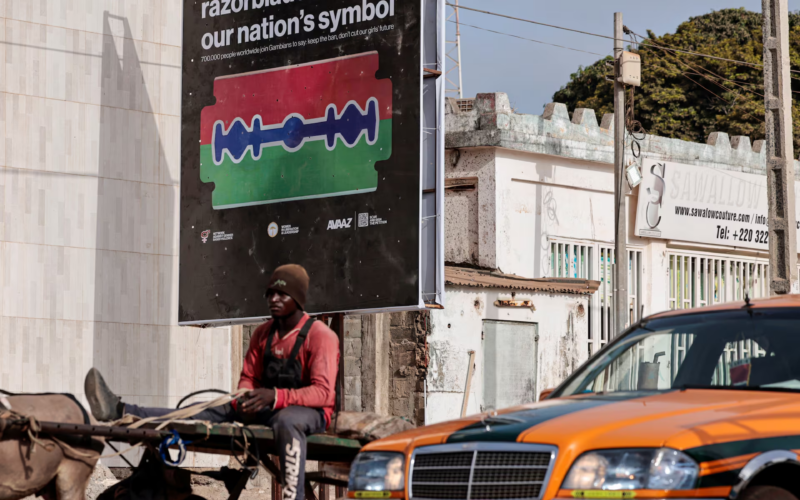Lawmakers in Gambia have decided to uphold the country’s ban on female genital cutting (FGC), reversing a previous move to overturn the legislation. This decision follows a fervent three-month campaign led by women’s rights advocates.
Earlier this year, Gambia had drawn significant international attention as it appeared poised to become the first nation to reverse protections against FGC. However, on Monday, 34 out of 53 members of the National Assembly voted to keep the ban in place. This marked a stark shift from March, when 42 out of 47 members had voted to repeal the ban.
Women’s rights campaigners celebrated the decision, seeing it as a victory for their relentless efforts to educate communities on the harmful effects of FGC, which in Gambia typically involves the removal of the clitoris and labia minora.
“We did everything we could collectively to ensure the law stays,” said Jaha Dukureh, an anti-FGC activist.
The ruling maintains critical legal protections for Gambian girls, who are often subjected to cutting in their early teenage years. It also impacts girls in the broader West African region, where cross-border cutting is common.
“This is a significant win for women and girls in The Gambia but also beyond,” said Satang Nabaneh, a Gambian legal scholar specializing in sexual and reproductive rights.
According to UNICEF, three-quarters of Gambian girls and women of reproductive age have undergone FGC, and two-thirds of the female population supports the practice. Despite this, the recent campaign underscored the importance of maintaining the ban.
Opposition to the ban has been strong, particularly from vocal imams and some lawmakers in the predominantly Muslim country. They argue that FGC is an Islamic practice, a claim contested by many Muslim scholars.
The ban, originally implemented in 2015 by former President Yahya Jammeh, saw its first prosecutions last year, leading to the conviction of three women. These convictions were used by opponents of the ban to argue that outlawing FGC was an imposition of Western values.
Fatou Baldeh, an FGC survivor and prominent campaigner, noted that the uncertainty surrounding the ban had led to an increase in cutting. She reported instances of mass cuttings in rural areas, with police often not responding even when informed.
While relieved that the ban remains, Ms. Baldeh expressed concern over the fragility of women’s and girls’ rights in Gambia.
“This bill could have gone any way,” she said. “And that is scary.”








